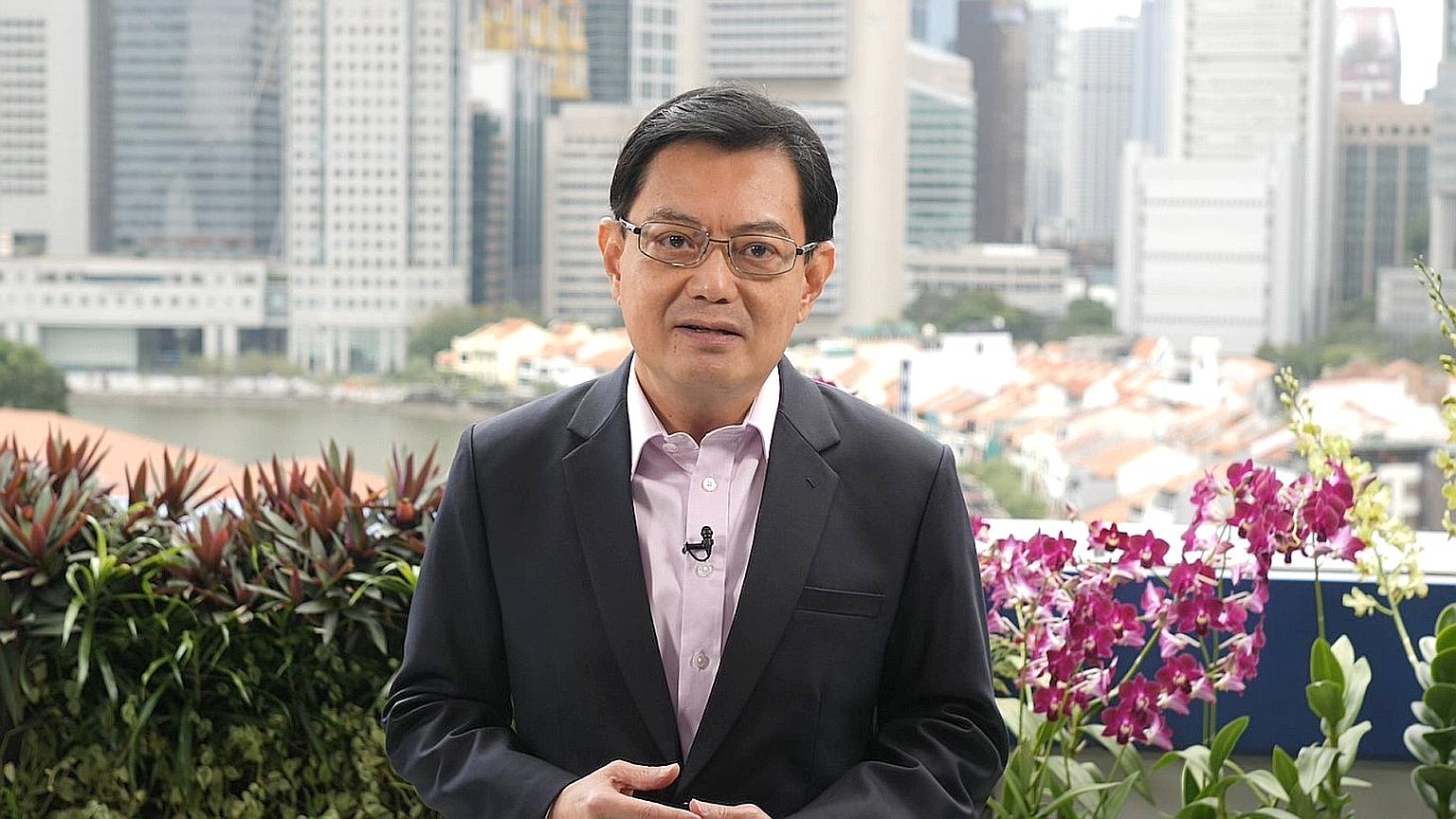S'pore can be a partner in region for investments, innovation: Heng
Another area is sustainability, he says, noting Republic's strong rule of law and connectivity
Sign up now: Get ST's newsletters delivered to your inbox

Deputy Prime Minister Heng Swee Keat
Follow topic:
Amid geopolitical tensions and structural shifts in the global economy, Singapore can be a partner in the region - by being a gateway for investments, a launchpad for innovation and a green node for sustainability, Deputy Prime Minister Heng Swee Keat said yesterday.
Speaking at the Credit Suisse Asian Investment Conference, he said the Republic has strong rule of law, international connectivity and a workforce which understands regional culture and norms.
As a trusted global financial centre, he added, Singapore can play a useful role in bringing in global investments. "We strive to build an internationally trusted banking system with prudent and progressive regulation."
Assets under management in Singapore doubled over the last decade, to around US$3 trillion (S$4 trillion) in 2019. Close to 60 per cent of it is from Asia, and about two-thirds is invested in Asia.
The venture capital sector here is growing. More than US$7 billion in venture capital deals were closed in 2019, a 30-fold increase in under a decade.
Global companies are also setting up research and development facilities here. The Government is investing US$19 billion over the next five years in research, innovation and enterprise across key domains such as advanced manufacturing, healthcare, urban solutions and the digital economy.
Singapore can also be a mar-ketplace for high-quality carbon credits and promote sustaina-bility through green finance, said Mr Heng.
He pointed out that today, the Republic accounts for over one-third of the sustainability-linked loan market in the Asia-Pacific. The Government is also taking the lead by issuing green bonds to support the financing of up to US$15 billion of public infrastructure projects.
"We can further harness the power of finance to promote cleaner and greener forms of energy and activities in the region."
Stressing that Asia's growth is "not fore-ordained", Mr Heng said its bright prospects due to its young population and growing middle class could take a dark turn.
"A demographic dividend could turn into a lost generation if we are not able to equip our youth with the right skills and create enough good jobs to ride the structural shifts," he said.
Countries such as Japan, China, South Korea and Singapore are also ageing rapidly, which will affect economic growth and increase social needs.
"Without adequate and sustained investments, the region's economy will not achieve its full potential, and could remain susceptible to future pandemics and catastrophes."
He added that regional stability must not be taken for granted. A fracture in United States-China relations would be destabilising, and other developments such as in Myanmar could have serious consequences for the region.
"Singapore is appalled by the violent crackdowns against civilians. It is crucial that all stakeholders in Myanmar come together to find a long-term, peaceful solution and a return to democratic transition," he said.
Last month, Myanmar's military detained State Counsellor Aung San Suu Kyi and President Win Myint in the country's first coup since 1988, bringing an end to a decade of civilian rule. More than 200 people are estimated to have been killed since the coup.
He said it is important for the region to not only navigate the shifting geopolitical tides, but also ride the next wave of economic opportunities together.
This means deepening regional integration and cooperation by speeding up the ratification of trade pacts such as the Regional Comprehensive Economic Partnership and growing the cross-border digital economy, stepping up economic transformation, and remaining open to investments from around the world.
"The economies of South-east Asia must seek to draw in more investments as companies reconfigure their production bases and supply chains for greater resilience."
He said that as the pandemic accelerates disruptions, it is important that countries plan ahead, invest in new capabilities and innovate so as to emerge stronger.
"There are many opportunities in Asia, especially South-east Asia. To continue to thrive, we must remain an open and inclusive des-tination for investments around the world."

